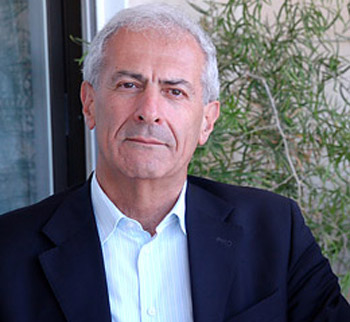Israel’s Jewish population, when compared to its non-Jewish population, has been on a steady decline since the late 1950s, says Israeli demographer Sergio DellaPergola.
Jews in Israel represented 89.2 per cent of its population in 1957 and 84.5 per cent in 1977. Today, however, the figure is 75.3 per cent, he said in a lecture last week at the Centre for Jewish Studies at the University of Toronto.
By contrast, Israel’s Arab population has correspondingly risen, from 10.8 per cent and 15.5 per cent in 1957 and 1977, to 20.7 per cent today, he noted.
Last year, Jews living between the Jordan River and the Mediterranean Sea represented 52 per cent of a heterogeneous population consisting of Arabs and foreign workers, he pointed out.
DellaPergola, a professor emeritus of population studies at Hebrew University, is a widely acknowledged expert in Jewish demographics.
Almost three years ago, he told the Jerusalem Post that Jews no longer constitute a majority of the population in this area when Israeli Arabs, Palestinian Arabs, foreign workers and African refugees are factored into the equation.
His projections, based on the assumption that the Arab birthrate will continue to outstrip the Jewish birthrate, have raised concerns that Israel’s future as a democratic Jewish state will be imperilled by the imperative of demography.
According to DellaPergola, the Jewish birthrate in Israel is significantly lower than that of its minority of 1.6 million Arabs.
For every 20.8 Jewish births per thousand, there are 24.7 Arab births per thousand, he said.
And because the Arab community has a younger population on average, the death rate in the Jewish sector is higher, he added.
Within Israel’s Jewish community, haredim have the highest birthrate, he said, noting they’re expected to comprise one-third of its Jewish population by 2049, compared to 10 per cent today.
In Israel, 24.1 per cent of Jews define themselves by religion, while 42.5 per cent define themselves by nationality and ethnicity. The remaining 29.8 percent identify themselves by citizenship.
Israeli Arabs define themselves mainly by religion (47.6 per cent), with 25.9 per cent identifying themselves by nationality and ethnicity and 24.1 per cent by citizenship.
Peering into the future, DellaPergola, a former adviser to the Israeli government and the president of Israel, suggested that Israel faces stark choices concerning its religious and ethnic composition. If the West Bank is retained, Israel will likely become a Jewish and non-democratic state, he said.
Alternatively, Israel can morph into a democratic and non-Jewish state.
Listing a third scenario, he said that Israel can remain Jewish and democratic without the West Bank.
Without explicitly saying so, DellaPergola implied that Israel can only continue to function as a democratic Jewish state if it withdraws from the West Bank, whose Arab population is estimated to be 2.6 million.
With more than six million Jews living in the Jewish state today, he went on to say, Israel has the world’s largest Jewish population.
Immigration has been the “major engine” for its rapidly expanding Jewish population, said DellaPergola, who was born in Italy in 1942 and immigrated to Israel in 1966.
The United States, with some 5.7 million Jews, ranks just behind Israel in terms of the number of Jews in its population.
More than 80 per cent of the 14 million Jews in the world can be found in Israel and the United States, he said.
In his view, there is a demonstrable correlation between a nation’s development and the size of its Jewish population. A more developed country has more Jews, he said.
Today, most Jews live in “first-world” democracies, but a century ago, they resided in underdeveloped societies in eastern Europe and the Muslim world.
During a question-and-answer session, DellaPergola admitted his data has been challenged.
Critics, such as former Israeli diplomat Yoram Ettinger, claim that official Palestinian population figures suffer from empirical and methodological deficiencies.
Still others contend that millions of new Jewish immigrants will pour into Israel in the future and thereby dispel fears that Israeli Jews will become a minority in their own land.
DellaPergola said he does not share these views.
